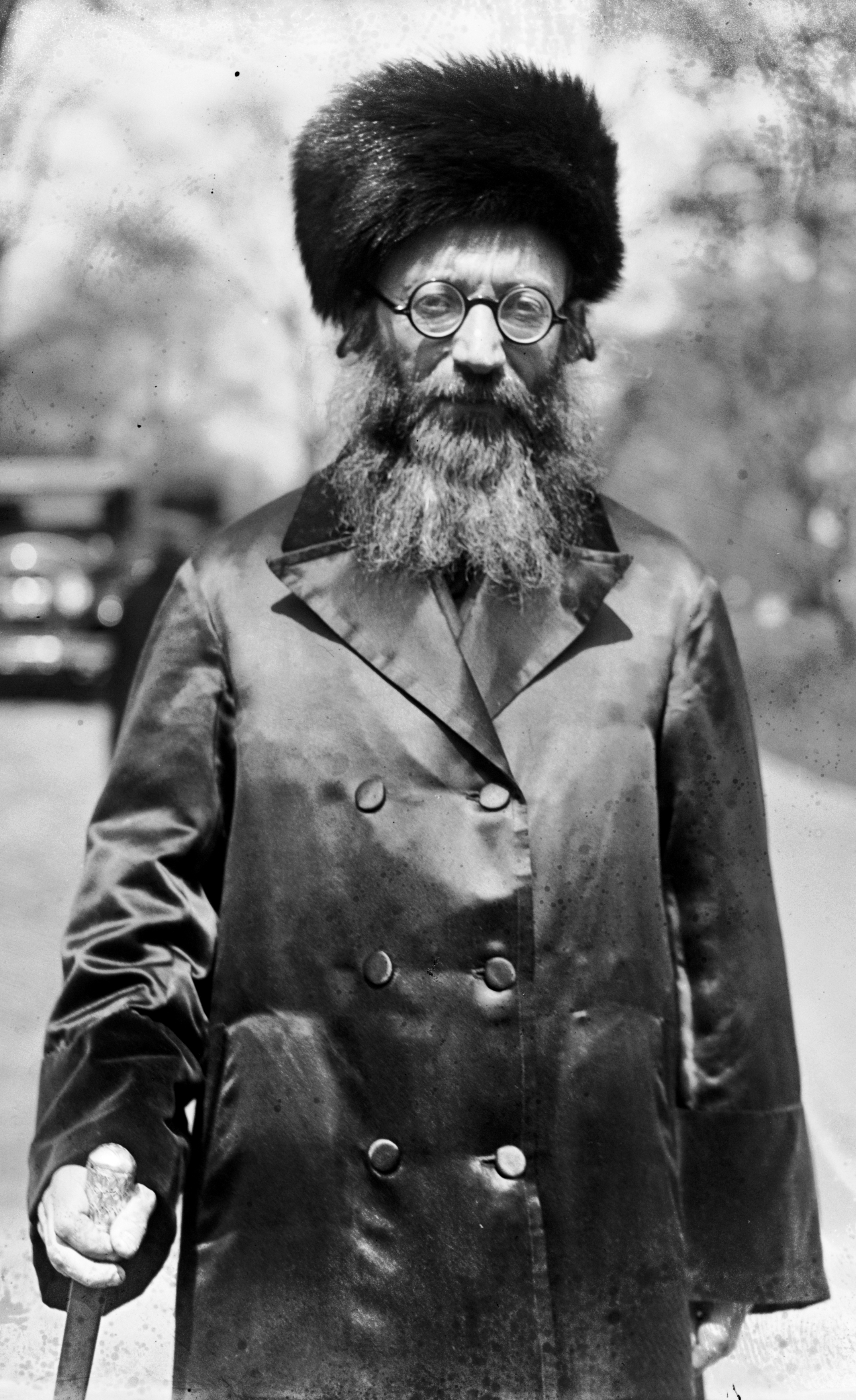“We forgot we have Holy Body not less than our Holy Spirit.”
Orot Hatchiah 33.
Orot
Abraham Isaac Kook emigró a Palestina en 1904. En 1921, se convierte en el primer gran rabino Askenazí del "Hogar Nacional Judío" en el Mandato Británico de Palestina, cargo que se acababa de crear. Era un rabino conocido por sus conocimientos talmúdicos. En 1924, creó la Yeshiva Merkaz Harav.
Su aceptación del cargo de gran rabino, cargo "sionista" por excelencia, demuestra su conformidad con los principios del sionismo religioso. Desde este cargo utilizará su prestigio para reforzar la corriente sionista religiosa en el seno del Judaísmo ortodoxo, en el Mandato Británico de Palestina y en el resto del mundo.
Es necesario recordar que en 1912, los ortodoxos "modernos" y los ultraortodoxos habían creado el partido Agudat Israel, muy hostil al sionismo inicialmente, si bien con el paso de los años prácticamente la totalidad de los ortodoxos de Agudat Israel apoyaron la creación del Estado de Israel, llegando a firmar su declaración de independencia. Esta evolución se debe en buena parte al empeño del rabino Kook por compatibilizar la ortodoxia religiosa con el sionismo y al genocidio de los judíos durante el Holocausto.
Sin embargo, hay que señalar que la actitud del rabino Kook ante el movimiento Mizrahi en particular y ante el sionismo en general no está exenta de crítica. El rabino Kook se preocupaba particularmente ante la influencia de los judíos laicos en el porvenir del judaísmo, y dudaba de la capacidad de respuesta del Mizrahi.
Más allá de su capacidad para legitimar el sionismo en el seno del Judaísmo ortodoxo, que en principio mostraba importantes reticencias, el rabino Kook orientó también la ideología del sionismo religioso hacia una vertiente más mesiánica. Para Kook, la redención del pueblo judío se ha iniciado ya, y los sionistas, incluso los ateos, son portadores de partes de esta redención, a veces a su pesar. La reconstrucción de una vida judía autónoma en Palestina permite y anuncia el retorno de los judíos de su exilio, luego su retorno a la práctica religiosa, y por último la llegada del Mesías. El sionismo es pues una herramienta en el proyecto de Dios para el advenimiento de los tiempos mesiánicos.
La influencia del rabino Kook en el desarrollo del sionismo religioso es cuádruple:
Reforzó la adhesión al sionismo en el seno de las corrientes judías ortodoxas .
Lo orientó en un sentido mesiánico, relacionando el retorno del Mesías con el sionismo.
Unió la tierra de Israel a la salvación religiosa del pueblo judío.
Debido a esas dos anteriores evoluciones, instituyó las bases ideológicas de la evolución ulterior y ultranacionalista de una parte importante del sionismo religioso, aunque él no fuera directamente responsable de esta interpretación.

“We forgot we have Holy Body not less than our Holy Spirit.”
Orot Hatchiah 33.
Orot
XXVIII : The Inner Light of Torah in the Land of Israel, as translated by Rabbi Bezalel Naor, p. 208 http://www.orot.com/lights.html
Orot
Contexto: The delight of the Torah is ignited by an inner awareness. A man begins to sense the great tapestry of each letter and point. Every concept and content, every notion and idea, of every spiritual movement, of every vibration, intellectual and emotional, from the immediate and general to the distant and detailed, from matters lofty, spiritual, and ethical according to their outward profile, to matters practical, obligatory, seemingly frightening, and forceful, and at the same time complex and full of content and great mental exertion — all together become known by a supernal holy awareness.
“Our generation is wonderful generation, full of wonder.”
Ma'amar Hador.
Contexto: Our generation is wonderful generation, full of wonder. It's very hard to find an example of it in all our history. Composed of contradictions — light and darkness mixed.
LXI : Redemption an Ongoing Process, as translated by Rabbi Bezalel Naor, p. 139 http://www.orot.com/lights.html
Orot
Contexto: The redemption continues. The redemption from Egypt and the complete redemption of the future are one unending action: the action of the strong hand and outstretched arm, which began in Egypt and works though all eventualities. Moses and Elijah are redeemers in a single redemption; the beginner and the ender, the opener and closer together fill the unit. The spirit of Israel hears the sound of the movements, the redemptive actions, brought about through all eventualities until the sprouting of redemption will be complete, in all its plentitude and [goodness].
"Fragments of Light: A View as to the Reasons for the Commandments," in The Lights of Penitence, The Moral Principles, Lights of Holiness, Essays, Letters, and Poems, trans. Ben Zion Bokser (New York: Paulist Press, 1978), pp. 317-318.
“A tiny remnant of a big thing is better than a whole little thing.”
Orot Hatchiah 14.
Orot
Orot Yisrael, Ch. 5, article 10, p. 156; as quoted in "The Distinction between Jews and Gentiles in Torah" by Rabbi David Bar Chaim http://www.daatemet.org.il/articles/article.cfm?article_id=119&lang=en
Variant:
The dissimilarity between the Jewish soul, in all its independence, inner desires, longings, character and standing vis-à-vis the soul of all the Gentiles — on all of their levels — is greater and deeper than the difference between the soul of a man and the soul of an animal, for the difference in the latter case is one of quantity, while the difference in the first case is one of essential quality
As quoted in "A British Synagogue Bans a Famous Hassidic Text!" (February 2010) by Rabbi Michael Leo Samuel http://rabbimichaelsamuel.com/2010/02/2744/#_ftn1.
Orot
“The good will is all — and all the talents are ways to fulfill it.”
Orot Hatshuva 9.
Orot
1933 Sermon: The Call of the Great Shofar https://www.israelnationalnews.com/Articles/Article.aspx/13794
Arpilei Tohar (1914), p. 2.